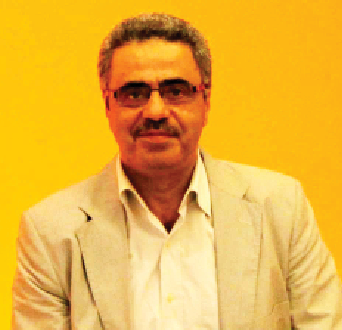Ferwati, M. S. (Lead Principal Investigator), Garba, S. B. (Principal Investigator), “Art in Public Places The Case of Doha Municipality, Qatar,” Local, $47,600.00. (September 10, 2015 – Present).
Abstract: Doha journey to globalization turns the attention to the essence of public spaces as a voice of the societal image. This is because, urban open places are perceived not only as physical entity and social action places, but also as urban semiotic realm. “Public art is a reflection of how we see the world-the artist’s response to our time and place combined with our own sense of who we are” (Bach, 1992). The art imprinted in public places reflects Qatari urban history, and the evolution of social culture. When public place become public art, they adds meaning to the city because landscape designers, artists, architects, decision makers and society respond to their times and vision of the ideal living place and being part of the world. The research is important for a deeper comprehension of Qatari public place heritage by students. The study also targets artists, landscape designers, and decision makers, the major players in the proposition of sustainable public space development. The study is anticipated to highlight profound urban design solutions that received little attention and noteworthy to illustrate. Such as the neglect of the value of traditional urban open spaces and the poor benefit of the local style when applied in new urban developments. The implementation of the study will highlight the continuous need to understand both traditional and contemporary public places, public arts and constituent elements not only as form and fashion but also solutions to social place and image of Doha. Finally, one of the essential benefits of the research is to prepare students to be knowledgeable and have the ability to deal with local spatial issues on the urban and city scale. Consequently as they step out into the professional life, they will be playing beneficial roles in preserving the traditional and emerge its principles into new urban designs. Not forgetting the indirect benefit of the study which is the confirmation of place identity and cultural continuity.
Ferwati, M. S. (Lead Principal Investigator), Sailor, D. (Principal Investigator), Shandas, V. (Principal Investigator), “Towards an Eco-Districts Strategy for Sustainable Urbanism in the Gulf Region. Greater Doha as case study,” Local, $998,865.30. (December 15, 2012 – February 28, 2016).
Abstract: Doha has grown as a conventional city of gridded streets, independent development parcels, segregated land uses, and introspective stand-alone look-at-me buildings. This form of sprawl is inconsistent with the cultural history and microclimatic reality that characterize Doha and other coastal cities of the Gulf. Creating Sustainable Urbanism calls for the application of a holistic organizing concept such as “EcoDistricts” to inform and direct growth that optimizes synergies in forming neighborhoods as living communities with an environmentally sustainable urban agenda. An EcoDistrict is a geographically defined area such as a remote village, urban neighborhood, institutional campus, employment district, city, or sub-region within which system flows of energy, nutrients, resources, information, financial capital, and cultural resources are focused locally, energized by their coordinated integration, and responsive to microclimatic conditions. EcoDistricts are a planning approach that calls for a more environmentally sustainable, low carbon city with next-generation infrastructure, culture and climate-sensitive public space, and high performance buildings. The proposal will activate a research partnership between Qatar University, Portland State University, and Portland Oregon-based Consultants to investigate, define, and illustrate an EcoDistrict urban strategy for existing and future Gulf cities using Doha, and its metropolitan area, as a case study.
Ferwati, M. S. (Lead Principal Investigator), “Biomimicry – An Approach to Smart Qatari Built Environment,” Qatar University, $10,000.00. (July 23, 2015).
Ferwati, M. S. (Principal Investigator), Boussaa, D. (Lead Principal Investigator), “Urban regeneration and Social Sustainability in Doha; A Critical Review of three Projects; Souk Waqif, Msheireb and Al Asmakh.,” under review.
